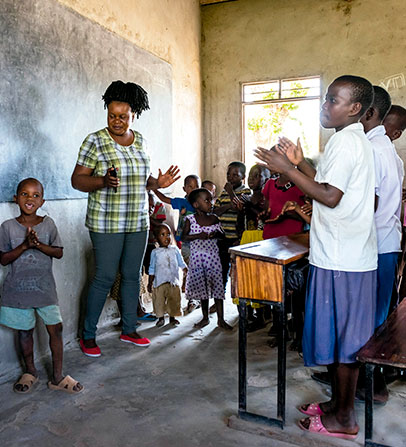The unexpected consequences of the peace
By: Juliana Vergara Agámez
Photos:
Economics and Politics

By: Juliana Vergara Agámez
Photos:
In the year 2018, after seeing the increasing and systematic statistics of the murders of social leaders in Colombia, especially considering that the analysis of the media was falling short in investigating the causes thereof and those responsible, Juan Fernando Vargas, a professor at the Faculty of Economics of Universidad del Rosario, decided to study the phenomenon.
His purpose was to contribute to a rigorous analysis of an issue that was limited to ‘affairs’for the Defense Minister in duty and only a news record for the media because they were limited to describing facts in isolation.
A group of researchers led by Vargas relied on periodic reports from the nongovernmental organization (NGO) Somos Defensores, which centralizes information from more than 500 national NGOs in charge of monitoring the aggression situation against social leaders in the country. After delimiting the study period between 2011 and 2017, the Rosario team coded the variables by date and by municipality to start the investigation.
Similarly, the State’s lack of presence also had an influence as, by not reaching those regions, it allowed illegal armed groups to increase their dispute for territorial control.
The conclusions of the investigation were shared by Professor Vargas, Mounu Prem, and Andrés Felipe Rivera from the Universidad del Rosario, and Darío A. Romero from the University of Columbia (United States), in the document Civilian selective targeting: The unintended consequences of partial peace, published in 2018, with a second version revised in 2019.

The Peace Agreement brought an increase in enrollment and other schooling indicators, including a decrease in the number of dropouts and improvements in the Saber test outcomes in municipalities that used to be controlled by the Farc.
The scholars aim to contribute to the country as well as to public policy through the interpretation of evidence, which, in this case, shows that the murder of social leaders is related to not only lawsuits, land restitution, or the substitution of illicit crops, as has been recorded in the media, but also to the struggle for political balance, a power vacuum, and the lack of state presence. Therefore, these scholars consider it important to have a dialog between scholars, decision makers, and the media.

Juan Fernando Vargas, a professor at the School of Economics in Universidad del Rosario, points out that the change of power in territorial balance has caused other unfortunate events, such as increased deforestation. Since the second half of 2015, this situation has occurred throughout the country but intensely in municipalities that were controlled by the Farc.